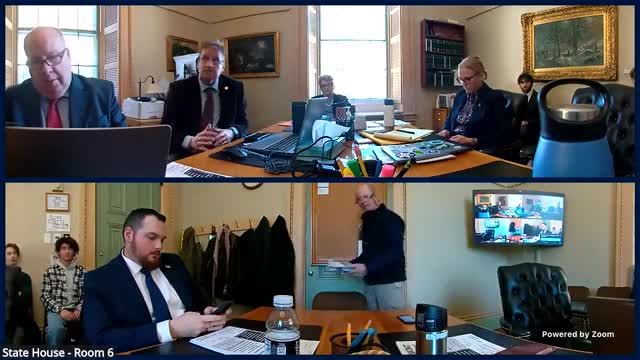Witness urges Senate panel to reject nominee to lead Vermont Department of Public Service over VELCO ties
Get AI-powered insights, summaries, and transcripts
Subscribe
Summary
A Montpelier telecommunications planner testified Jan. 22 before the Senate Finance Committee urging senators not to confirm the governor’s nominee to lead the Department of Public Service, citing close ties to VELCO and calling for greater oversight of the utility’s fiber and telecom activities.
Steven Whitaker of Montpelier told the Senate Finance Committee on Jan. 22 that the committee should not confirm Governor‑appointed Eric Johnson to serve as commissioner of the Department of Public Service because of what Whitaker described as close ties between Johnson and VELCO, a transmission company with significant fiber and radio assets in Vermont.
“Do we really want the fox guarding the hen house?” Whitaker asked, urging senators to scrutinize the nominee’s ties to a regulated entity and to seek a commissioner with no direct connection to the utilities they will oversee.
Whitaker cited historical reporting and a 1991 Associated Press article he provided to the committee as context for concerns about a revolving door between utilities and state government. He said VELCO is 51 percent owned in a structure designed to limit foreign control of transmission assets, that VELCO controls substantial fiber and tower assets, and that those assets generate revenue that, in Whitaker’s view, requires greater transparency and regulatory oversight.
Whitaker also pointed to the Vermont Community Broadband Board and to the statutory obligation in 30 V.S.A. § 202(c), which directs support for open access broadband infrastructure, and said the department should enforce open‑access principles rather than writing plans to match proposed statutory changes.
Why it matters: The Department of Public Service oversees long‑range planning and consumer protections related to utilities and broadband. The nominee’s background and outside ties, if judged to present conflicts, could affect the department’s independence and the enforcement of statutes governing broadband access and utility rates.
Whitaker asked the committee to withhold confirmation and to insist that the governor nominate a candidate without direct ties to any regulated utility. The committee chair indicated a vote on the nominee is scheduled but did not complete a confirmation vote during the Jan. 22 hearing; several senators asked for full committee participation when votes are taken.
Committee business and procedure: The chair told the witness that the committee will not repeat testimony for absent members and that senators may review the video or written testimony if they were not present. The hearing did not produce a confirmation vote; the committee discussed scheduling and quorum for a future vote.
